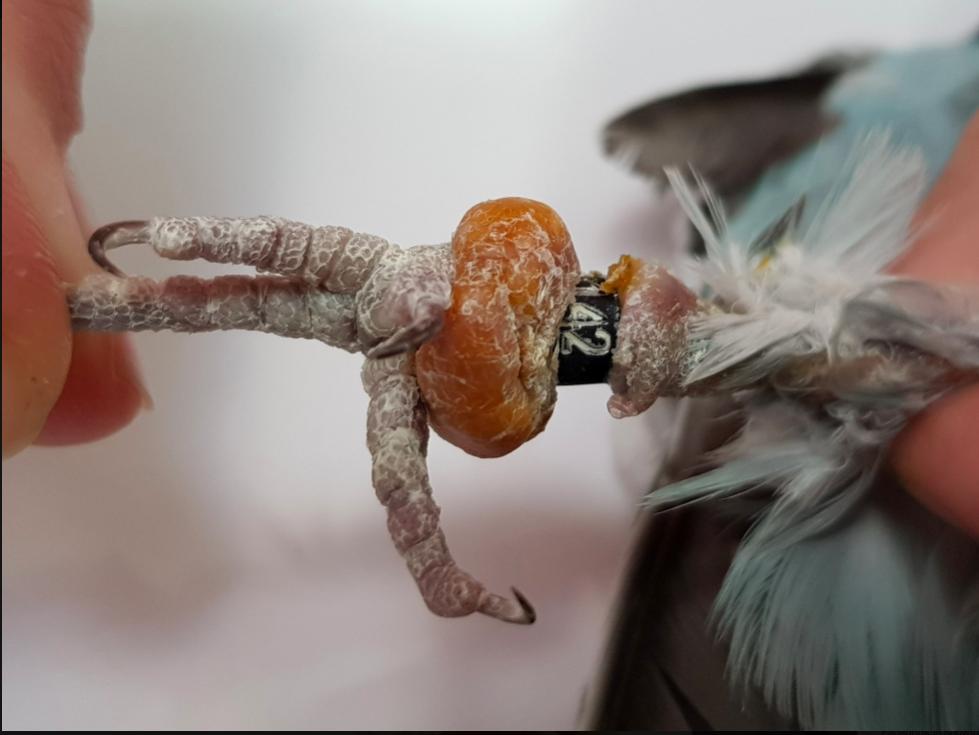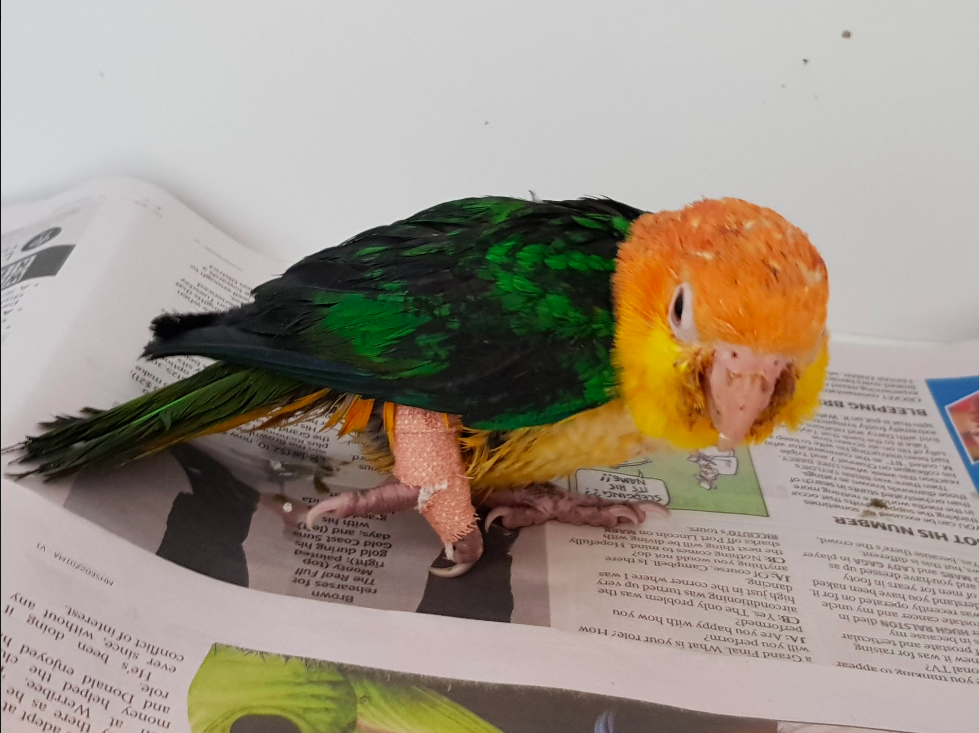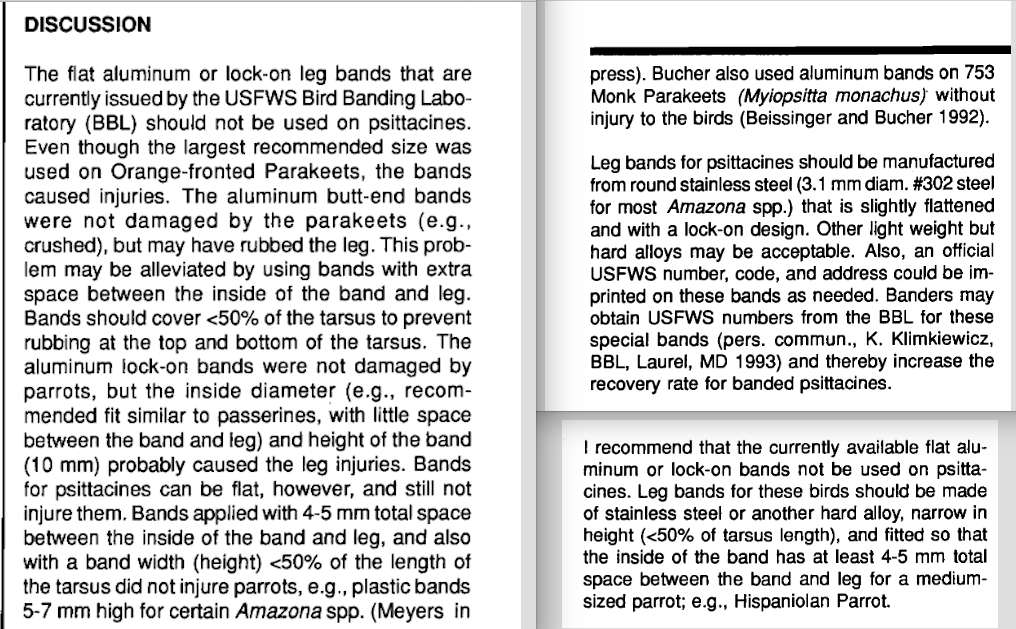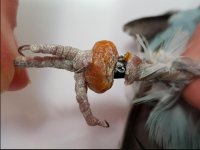I'm Bigbirdy, the only type of bird species I have experience with is having many chickens. I'm interested in parrots now because I've decided to build an outdoor aviary.
I'm having issues with deciding whether to put stainless steel leg rings on my parrots or not. The "closed leg rings" have to be applied before the third week after the baby parrot is born, but they don't have accurate measurements for that young age to ensure they won't be too tight in it or if it will slip off in the future.
The metal rings can be dangerous if they get caught in toys or branches, and if they're too small they can restrict blood flow to the feet. Sometimes the only way to remove them is to amputate the bird's leg. I'm also worried about electrocution when they land on power lines, but I read that stainless steel is a poor conductor of electricity.
Here's a budgie who had a leg injury from a ring.
https://www.facebook.com/melbournebirdvet/posts/2626439977426850


Here are some studies I've researched on what are the most appropriate rings to apply to parrots.

Is it better to get closed rings that are a little loose, or get open stainless steel rings and adjust it to their size with pliers?
Here is a company that sells rings:
https://www.birdbands.com/legrings/stainlesssteel.html
My new parrots will be hand-fed and hand-raised so they can have a good relationship with me and each other. My plans are to teach them to free fly by recall training in the outdoor aviary, then putting a GPS on their tail and letting them free fly, so they can learn to go around my neighborhood and return to the aviary to sleep and eat in the evening. When I see that they return on their own before night 10 days in a row, then I'll be confident enough to remove the GPS.
I'm having issues with deciding whether to put stainless steel leg rings on my parrots or not. The "closed leg rings" have to be applied before the third week after the baby parrot is born, but they don't have accurate measurements for that young age to ensure they won't be too tight in it or if it will slip off in the future.
The metal rings can be dangerous if they get caught in toys or branches, and if they're too small they can restrict blood flow to the feet. Sometimes the only way to remove them is to amputate the bird's leg. I'm also worried about electrocution when they land on power lines, but I read that stainless steel is a poor conductor of electricity.
Here's a budgie who had a leg injury from a ring.
https://www.facebook.com/melbournebirdvet/posts/2626439977426850

Here are some studies I've researched on what are the most appropriate rings to apply to parrots.

Is it better to get closed rings that are a little loose, or get open stainless steel rings and adjust it to their size with pliers?
Here is a company that sells rings:
https://www.birdbands.com/legrings/stainlesssteel.html
My new parrots will be hand-fed and hand-raised so they can have a good relationship with me and each other. My plans are to teach them to free fly by recall training in the outdoor aviary, then putting a GPS on their tail and letting them free fly, so they can learn to go around my neighborhood and return to the aviary to sleep and eat in the evening. When I see that they return on their own before night 10 days in a row, then I'll be confident enough to remove the GPS.
